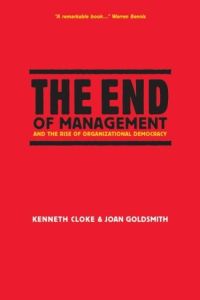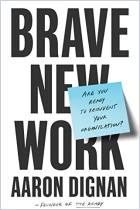Зарегистрируйтесь на getAbstract, чтобы получить доступ к этому краткому изложению.

Зарегистрируйтесь на getAbstract, чтобы получить доступ к этому краткому изложению.
Joan Goldsmith and Kenneth Cloke
The End of Management
And the Rise of Organizational Democracy
Jossey-Bass, 2002
Что внутри?
Democracy — coming soon to a company near you.
Recommendation
Newscasts are filled with reports of democracy’s relentless spread across the planet, but less is heard of its expansion through the corporate world. Just as dictators and oligarchs everywhere are being toppled from power, the hierarchical management structures that have governed organizations since before the industrial revolution are falling. Their usurper is self-management - the concept that motivated employees empowered to make their own decisions will work harder, faster and smarter than their rigidly controlled counterparts. Kenneth Cloke and Joan Goldsmith document this organizational coup and instruct executives on how to incite the revolution in their own companies. While acknowledging the scarcity of hard data to prove some of the book’s assertions, getAbstract.com highly recommends The End of Management to all executives for its innovative take on modern organizational theory.
Summary
About the Authors
Kenneth Cloke is director of the Center for Dispute Resolution and a mediator, arbitrator, consultant, and trainer. Joan Goldsmith is an organizational consultant and educator specializing in leadership development and organizational change. Cloke and Goldsmith draw on more than 30 years of practical experience in organizational consulting with hundreds of organizations. They are co-authors of four previous books, including Resolving Conflicts at Work.


















Comment on this summary